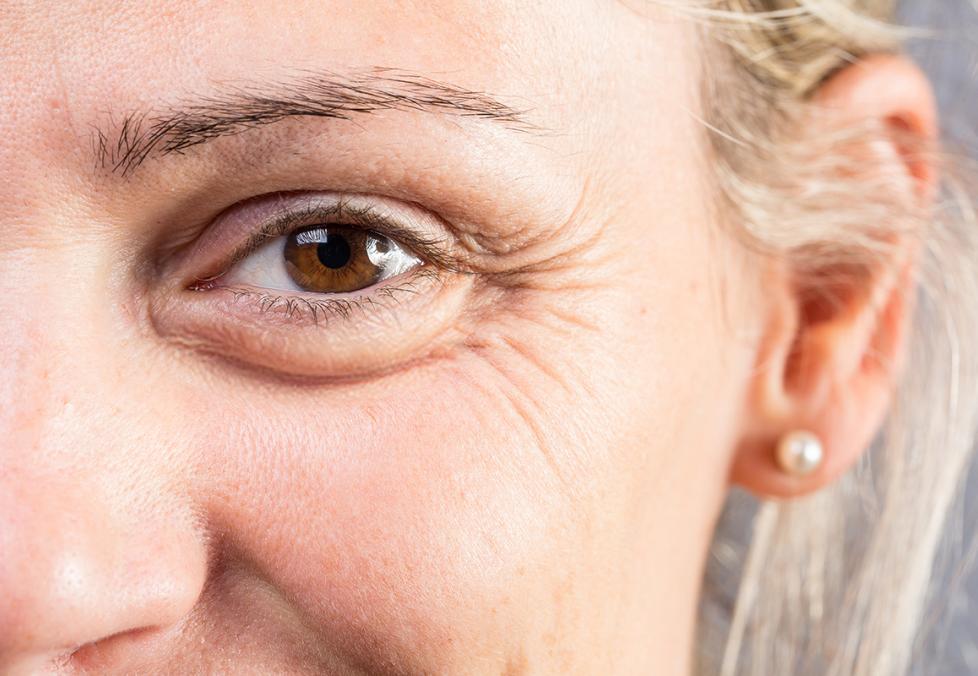
Our eye care specialists are here to help you see your best. Buy two pairs of glasses and the exam is on us!
Everything you need to know to take care of your eyes — for life.

We’ve all been there: You go to sleep after eating a salty meal, or during an allergy flare-up, or after a good cry — and then wake up the next morning with puffy eyes.
Also known as periorbital edema, this swelling around the eyes is usually fleeting and nothing to think twice about. “It’s the result of fluid building up in the tissues around your eyes,” explains Carla Ericksen, O.D., an optometrist and the owner of Beyond Vision LNK, located inside an America’s Best Contacts & Eyeglasses in Lincoln, Nebraska.
All kinds of things can cause your body to hold onto fluid, such as not drinking enough water or having a cocktail with dinner. “When you sleep, you’re not blinking, so fluids can’t circulate properly,” says Dr. Ericksen. That’s why puffiness is usually at its worst when you first get out of bed. Chances are your eyes will return to their normal appearance in about a day.
But sometimes, puffy eyes are a sign of a more serious underlying problem, such as an injury or a thyroid issue. Read on to learn when you should pay a visit to your eye doctor.
Have questions about your vision or eye health? Reach out to your America’s Best optometrist, who is an important part of your care team. Click here to make an appointment.
It can take a day or so for the swelling around your eyes to fully resolve. But if they’re still puffy a full day or two later, there’s a chance there’s something else going on, says Dr. Ericksen. It’s a good idea to get an eye exam in case you need treatment, such as antibiotic eye drops.
Periorbital edema can also be a side effect of certain medications and treatments, including chemotherapy. Talk with your optometrist about puffy eyes that don’t seem to go away. They can review the medications you take and help figure out if one may be contributing to your puffy eyes.
People with eye allergies might notice both eyes become puffy after spending time outside during pollen season. This is common, albeit itchy and irritating. But if only one eye is puffy — or if one eye is significantly puffier than the other — it could signal an eye condition or infection, such as:

Our eye care specialists are here to help you see your best. Buy two pairs of glasses and the exam is on us!
Puffiness on its own is usually nothing to worry about. But if it’s accompanied by other symptoms, such as pain, it could signal an underlying problem, says Dr. Ericksen. She says it’s a good idea to call your eye doctor if you notice these symptoms in addition to puffiness:
Recommended reading: 6 Things Your Eyes Reveal About Your Overall Health
If the puffiness comes after you scratched your eye, or you suspect there may be a foreign object in your eye, schedule a visit with your optometrist. They can examine you and come up with a treatment plan for your eye injury.
It’s one thing to have puffy eyes. It’s another to not be able to see out of them at all. If one or both of your eyes has totally swollen shut, visit your eye doctor to rule out underlying causes.
First order of business: Call your optometrist and schedule an eye exam immediately. Your eye doctor will check your eyes to determine whether the swelling is due to something innocuous, such as an insect bite, or something more serious, such as an eye injury or infection.
Undiagnosed eye allergies are the most common culprit of persistent puffy eyes, says Dr. Ericksen. “A lot of times, it’s because the person is allergic to an ingredient in a product they used — like someone with a latex allergy using eyelash glue that has latex in it,” she says.
Chronic puffy eyes can also be caused by various health conditions, including:
Most of the time though, your puffy eyes are just a sign that you need more sleep or water. But when it comes to your vision and eye health, it’s better to be safe than sorry.
Has it been a while since your last eye exam? Now’s the time to book an appointment!
Medically reviewed by Carla Ericksen, O.D.
See our sources:
Puffy eyes overview: Mayo Clinic
Orbital cellulitis overview: JAMA
Graves’ eye disease and thyroid eye problems: National Eye Institute
Signs of kidney disease: National Kidney Foundation